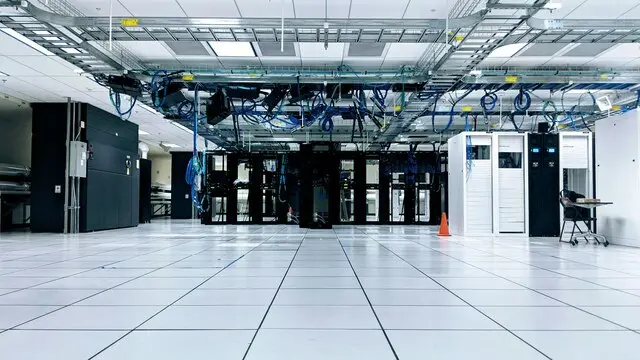The AMDGPU driver is becoming so large that when using a recent AMD Radeon graphics card with an aging system is beginning to run into problems of the boot splash screen not appearing... Because it takes too long to load the driver.
You are using an out of date browser. It may not display this or other websites correctly.
You should upgrade or use an alternative browser.
You should upgrade or use an alternative browser.
What Linux Operating Systems do you like?
- Thread starter Retro6
- Start date
More options
Thread starter's postsTo think there was a time when i skipped over Fedora for being too stripped back and minimalistic but it's starting to feel like a breath of fresh air and a god send compared to all the crap in Ubuntu,Mint that i never use.
I'm not ready to jump ship just yet but debian based distros are really stating to feel old, cluttered and outdated to me regardless of much they try and polish it.
I'm not ready to jump ship just yet but debian based distros are really stating to feel old, cluttered and outdated to me regardless of much they try and polish it.
but debian based distros are really stating to feel old, cluttered and outdated to me regardless of much they try and polish it.
I don't understand this logic, unless you're focusing on downstream Operating Systems, you don't get much more minimal in the Linux world than Debian, with a net install I have pretty much zero packages that aren't required. Although you mention outdated, so maybe Debian isn't your bag, albeit I have zero interest in the bleeding edge breaking things, my OS needs to be stable. I personally want to transition to using OpenBSD as a daily driver more than I currently do (around 30% of the time), 16MiB memory usage on install in 2024 was pretty impressive, albeit pointless in terms of what I have available.
You definitely seem to hate Ubuntu though

I don't understand this logic
My musing would have made more sense if i'd just posted that i'm starting to like the standard install of Fedora workstation more than i used to though not enough to leave Debian just yet.

Switching customers from Linux to BSD because boring is good
Stability? Predictability? Reliability? Where's the fun in that?
I personally want to transition to using OpenBSD as a daily driver
This is on the front page of theregister unless you've already seen it.
This is on the front page of theregister unless you've already seen it.
I'd already read the original source, I read Stefano Marinelli's blog every now and then. I caught a few of the BSD Con talks too, need to catch up on some more. I remember his original blog post about 'cloud chaos'

From Cloud Chaos to FreeBSD Efficiency
Experience a journey from Kubernetes to FreeBSD, achieving major cost savings and efficiency through real-world optimization.
I don't necessarily agree it's suitable for a lot of people, but lots of people do overcomplicate their solutions, complexity for complexities sake and because they want to learn/use the 'in' tech.
The BSDs are absolutely fantastic as servers, and I've used them for a fairly long time (15 years maybe, versus closer to 25 for Linux). Until recently, all my public servers were FreeBSD with IPFW or OpenBSD with pf, and my home router was an x86 box running OpenBSD with pf and fq_codel. The latest FreeBSD 14.x series is a great uplift performance-wise, and the system was no slouch before.I don't necessarily agree it's suitable for a lot of people, but lots of people do overcomplicate their solutions, complexity for complexities sake and because they want to learn/use the 'in' tech.
As stated in the blog/article, the predictability and reliability of *BSD are second to none. You can stand up a basic server in minutes, with a battle-tested public facing infrastructure and rock solid reliability. Updates won't suddenly change interface names, deprecate standard tools, offload yet another core function to the init system *cough* systemd *cough*, or break in 'interesting' ways because reasons... I know I can spin up an instance, scp my config and it'll Just Work until kingdom come.
The only downside in today's hyperscaling cloud world is the network performance under qemu/libvirt. Where Linux VPS/guests will saturate 10Gb without breaking a sweat, the virtio NIC driver on *BSD will cap out at around half that on a Linux host. Bare metal has no such issues, see: Netflix serving almost 1Tb/sec of traffic from FreeBSD. Linux has its uses, especially on very modern (eg AVX512, Ampere) hardware or where a specific use-case is identified. Standard Alpine, Debian/Devuan or RHEL will serve similarly well for most things, albeit with the additional headaches. For me, Alpine is the best middle ground Linux-wise, as it runs OpenRC instead of systemd and is as light as OpenBSD on a basic install.
The only downside in today's hyperscaling cloud world is the network performance under qemu/libvirt. Where Linux VPS/guests will saturate 10Gb without breaking a sweat, the virtio NIC driver on *BSD will cap out at around half that on a Linux host.
Yeah, I think it will get there - although I'm also moving away from traditional linux based virtualisation where possible, bhyve is pretty good now although I am putting my hopes in vmm/vmd which is coming along nicely too.
Still pretty much Linux based at work unfortunately, but that's life. One of our architects is a big FreeBSD fan, and he put forward the recommendation for using it, unfortunately he got laughed out of the meetings. I can understand why, but would be amazing to use in prod.
Debian is just so stable and solid.
Ubuntu in comparison feels flaky and buggy, had way more unexplained issues with Ubuntu previously, before switching over to deb 12
The Debian minimal ISO has always been my go to for servers. Without fail, I forget that sudo isn't included and try to use it.
What do people like as a Windows replacement? I'm setting up another desktop that won't be used for gaming soon and have been umming and ahhing over which Linux desktop OS to pick.
The Debian minimal ISO has always been my go to for servers. Without fail, I forget that sudo isn't included and try to use it.
I customise my debian server install to automate addition of sudo and adding a user account to be able to elevate, because I too used to always forget.
What do people like as a Windows replacement? I'm setting up another desktop that won't be used for gaming soon and have been umming and ahhing over which Linux desktop OS to pick.
Debian, I use Debian is my main OS, with i3 still because I'm old fashioned and haven't made the switch to Wayland yet. It has the ability to install all the traditional DEs if needed too, let's be honest you're not missing out much if you have to install a well-tested, but slightly older version of GNOME, KDE, XFCE etc.
Mint. It’s a well supported and mature workhorse distro that you can just install and use. I do t have the patience anymore to deal with anything else!What do people like as a Windows replacement? I'm setting up another desktop that won't be used for gaming soon and have been umming and ahhing over which Linux desktop OS to pick.
Associate
- Joined
- 9 Jun 2004
- Posts
- 1,543
The Debian minimal ISO has always been my go to for servers. Without fail, I forget that sudo isn't included and try to use it.
What do people like as a Windows replacement? I'm setting up another desktop that won't be used for gaming soon and have been umming and ahhing over which Linux desktop OS to pick.
If you're not planning on gaming, the choice is probably driven more by what Package Manager and apps are available and what Desktop Environment you would be happy with, rather than the actual OS distribution. Having used many distributions, those factors have made the major differences in usability for me.
The Debian minimal ISO has always been my go to for servers. Without fail, I forget that sudo isn't included and try to use it.
What do people like as a Windows replacement? I'm setting up another desktop that won't be used for gaming soon and have been umming and ahhing over which Linux desktop OS to pick.
Mint is the best transition from windows imho.
Given you have some Linux experience then EndeavourOS (arch) is good if you want to try something non Debian/Ubuntu based.
Infidelus
Infidelus
It also works quite well as a gaming OS, unless of course you ask anyone that uses Arch who will tell you it's rubbish and everything's too out of date. Hasn't stopped me playing any game I want to so farMint. It’s a well supported and mature workhorse distro that you can just install and use. I do t have the patience anymore to deal with anything else!
 .
.For pure gaming, I use Bazzite. My gaming PC is connected permanently to my TV and Bazzite is a real game changer. It’s pretty much SteamOS with all the goodness that brings ie a slick console-like big screen interface. Can’t recommend it highly enough for gaming purposesIt also works quite well as a gaming OS, unless of course you ask anyone that uses Arch who will tell you it's rubbish and everything's too out of date. Hasn't stopped me playing any game I want to so far.
Infidelus
Infidelus
Never heard of it but very interesting. I might have to look at it sometime, though I like Mint as it just does everything I want and I don't want to lose my 'everyday' PC  .
.
 .
.For me, Alpine is the best middle ground Linux-wise, as it runs OpenRC instead of systemd and is as light as OpenBSD on a basic install.
I love Alpine linux desktop with flatpaks but i just can't live with nouveau drivers as a daily driver so i would need to change to AMD or Intel.
Someone put an early version of Nvidias new open source drivers in the community testing repo but there's no info if it been hacked and patched to run with musl/gcompat (glibc compatibility layer).
In fact no info if it even works.
Last edited:

